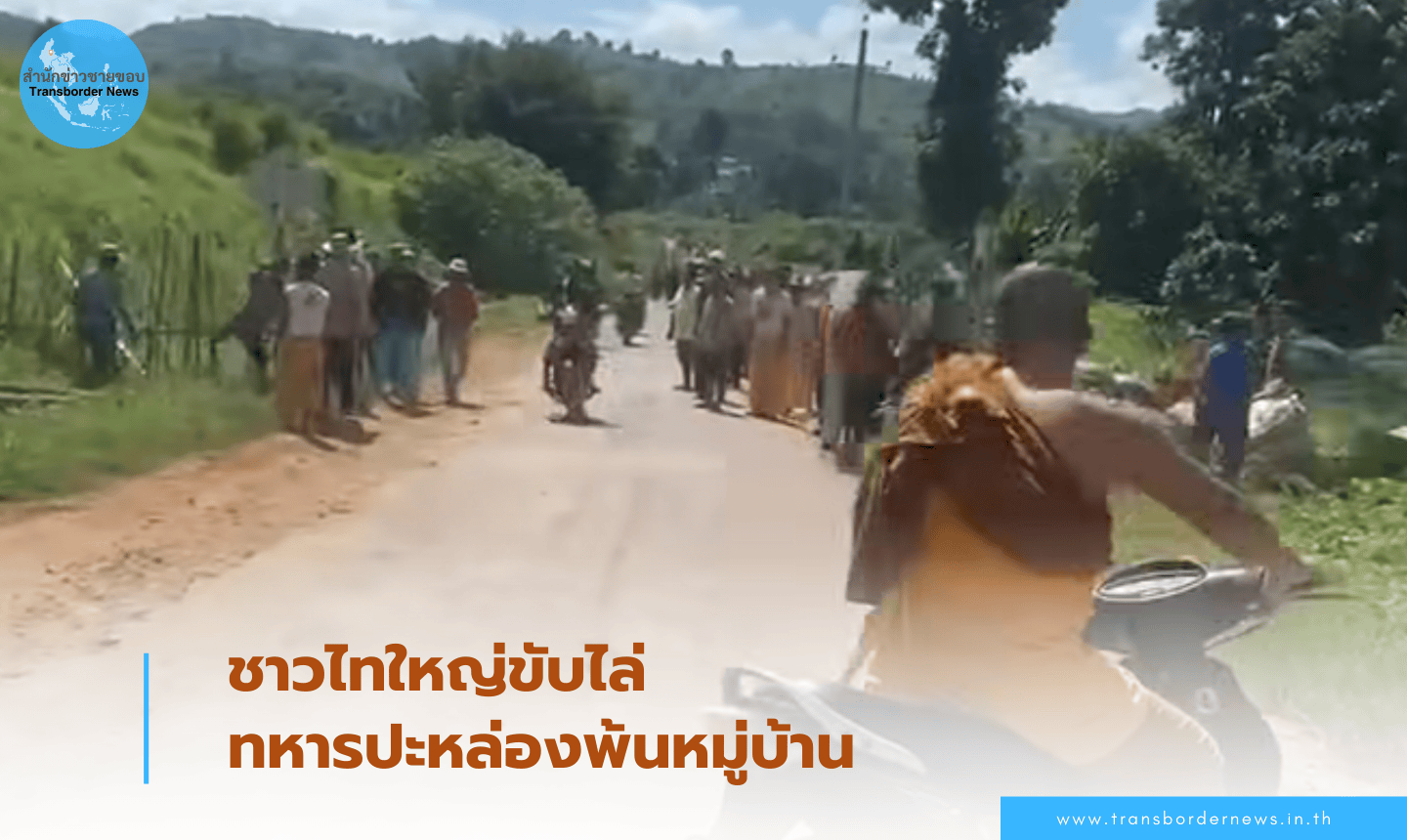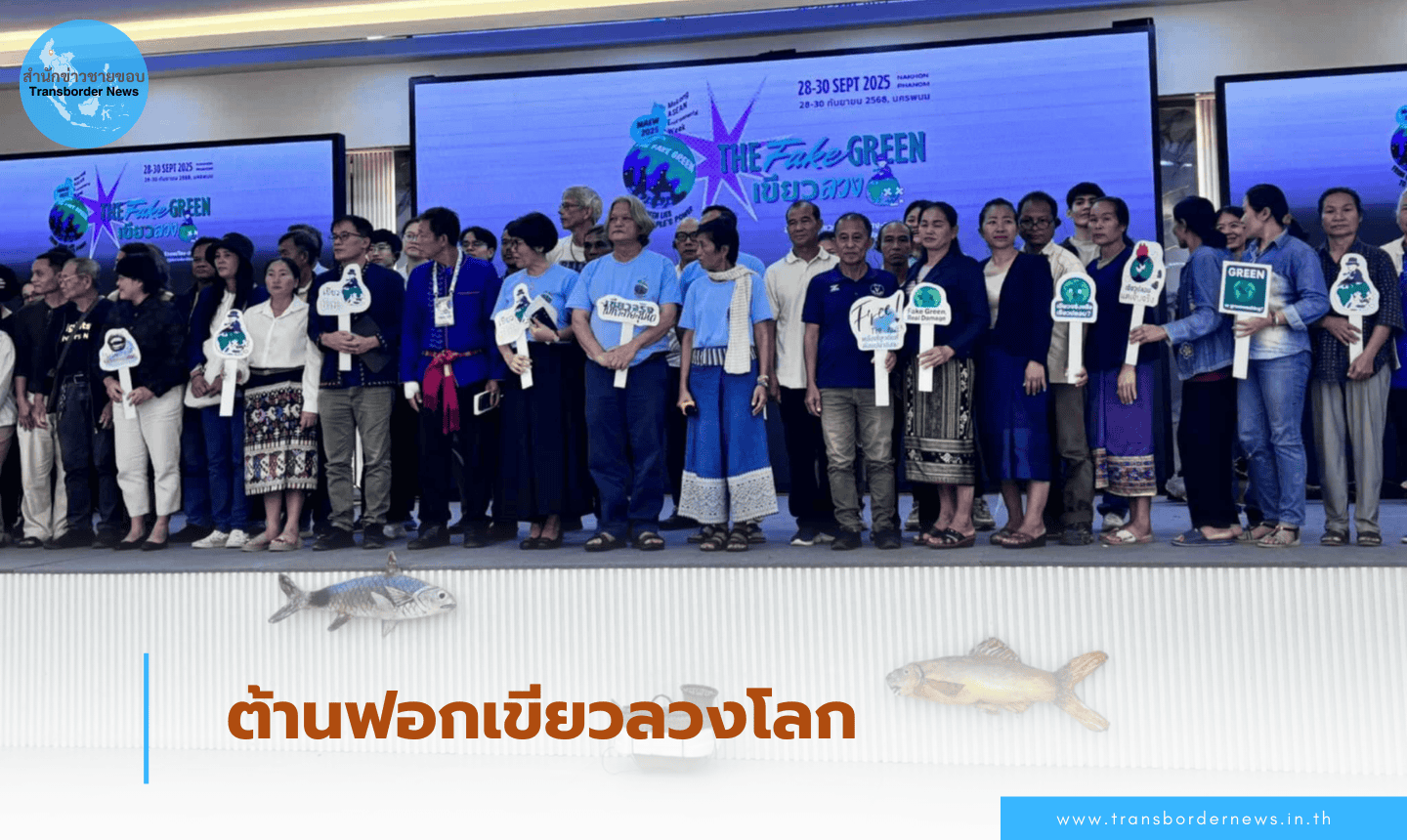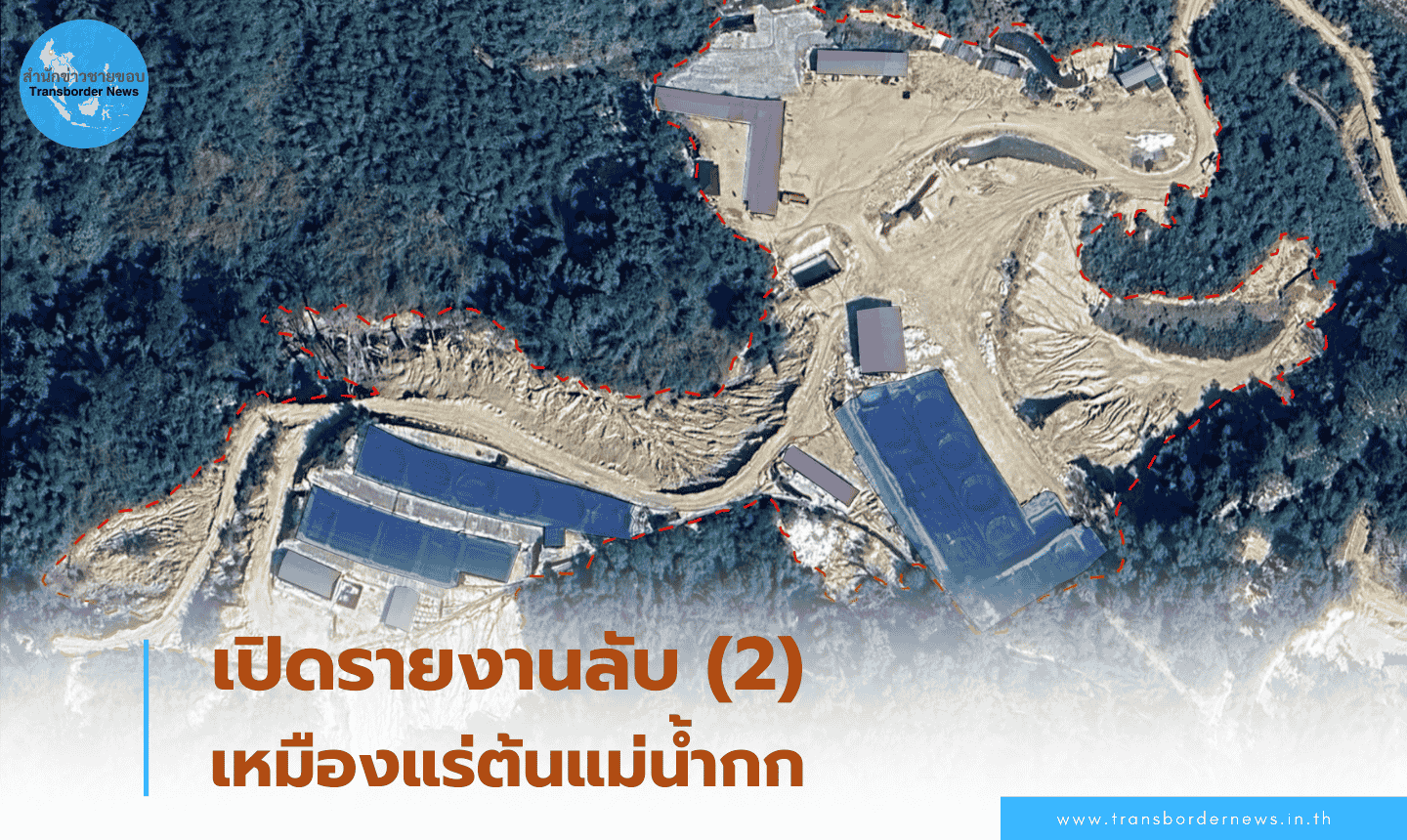Chiang Rai – On June 21, 2025, residents of Chiang Rai and Tha Ton (Mae Ai district, Chiang Mai) gathered at the Chiang Rai Contemporary Art Museum to call for an end to upstream illegal mining operations in Myanmar, which are blamed for toxic contamination of the Kok, Sai, Ruak, and Mekong Rivers. The event featured youth music performances, a cultural fair, and public forums focused on the causes of river pollution and affected communities’ voices.
The gathering aimed to pressure both Thai authorities and international actors to take action on what participants called an escalating cross-border environmental crisis.
A civil society coalition had invited the Chinese Ambassador to Thailand to hear directly from population affected by Chinese-linked mining operations in Myanmar’s Shan State, but no representative from the Chinese Embassy attended. Dr. Suebskun Kidnukorn of Mae Fah Luang University, who helped coordinate the event, said the embassy had referred the issue to the Chinese Consulate in Chiang Mai, which in turn referred it back to the embassy.
Chiang Rai senior citizen Nakorn Pongnoi, of Mae Fah Luang Art and Cultural Park opened the event by emphasizing the importance of addressing public health risks posed by heavy metal contamination in the Kok River, saying that everyone wants to bring back clean water and rivers.
Phra Maha Nikom of Wat Tha Ton Buddhist Temple in Chiang Mai, likened the mining issue to persistent weeds. He said dealing with symptoms, such as building sediment traps, is insufficient; the root cause—illegal upstream mining—must be removed entirely.
Bundit Phanphlakorn, president of municipal council in Mae Sai, noted that the once-clear Sai River has been polluted for the past three years. Traditional community festivals linked to the river have disappeared. He raised concerns over health risks, citing personal experience with skin irritation and the discovery of toxic substances in shallow wells. He called on the Thai government to act decisively and criticized the Myanmar government for deflecting responsibility, while Chinese companies continue mining and profiting.
The Thai Department of Water Resources presented three designs for sediment-trapping weirs and acknowledged that while such structures may help reduce visible sediment, they are not designed to filter out toxic metals like arsenic and lead.
Asst. Prof. Dr. Sitang Pilailar from Kasetsart University recounted her research in Pichit Province, where toxic exposure from gold mining caused serious illness, cancer, and birth defects. She warned that the current situation in northern Thailand could follow a similar path if upstream mining is not stopped. She stressed that heavy metal contamination accumulates in both ecosystems and human bodies, often without immediate symptoms.
Dr. Sitang added that public trust in official water quality reports is low and criticized the lack of decisive government action. She questioned the effectiveness of sediment weirs in trapping fine particles that carry heavy metals and emphasized the need for comprehensive testing, including blood samples from local residents.
Environmental activist and Goldman Environmental Prize Winner, Niwat Roykaew warned that heavy metal contamination from the Kok and Sai Rivers is spreading into the Mekong. He voiced concerns about the construction of the Pak Beng Dam project, which could trap toxic sediments and worsen the situation by turning the Mekong into a “toxic reservoir.” He urged the Thai government to address the root of the problem and ensure public safety.
Dr. Wirun Limsawat from the Ministry of Public Health called for redirecting from weir construction to preventive measures. As a medical professional, he emphasized the need to focus on public health protection rather than false protection.
Kachin researcher Zau Lawt reported that Myanmar’s Kachin State hosts over 300 rare earth mines, which use hazardous chemical processes and dump waste directly into rivers. He noted that Chinese investors are now moving operations into Shan State, near the Thai border, including along the Kok River. He said the environmental destruction in Kachin—where fish, cattle, and agriculture have been wiped out—offers a grim warning for Thailand.
Sayamon Kaiyuravong, a National Human Rights Commissioner, said that because Thailand has no human rights court, she had submitted the issue of arsenic contamination in the Kok, Sai, and Mekong Rivers to the United Nations for international review.
Tuenjai Deetes, a former Senator and founding board member of the Hill Area and Community Development Foundation (HADF), called for stronger engagement from Thailand’s business sector and suggested that the issue should be raised directly with Chinese President Xi Jinping, whose country benefits most from the rare earth mining.
In conclusion, speakers and attendees called on the Thai government to pressure China and Myanmar to stop illegal mining, conduct transparent environmental and health assessments, monitor and restore affected water systems, reject short-term solutions like weirs unless they are proven effective, and protect affected communities before irreversible damage occurs.
See original Thai article https://transbordernews.in.th/home/?p=43076





